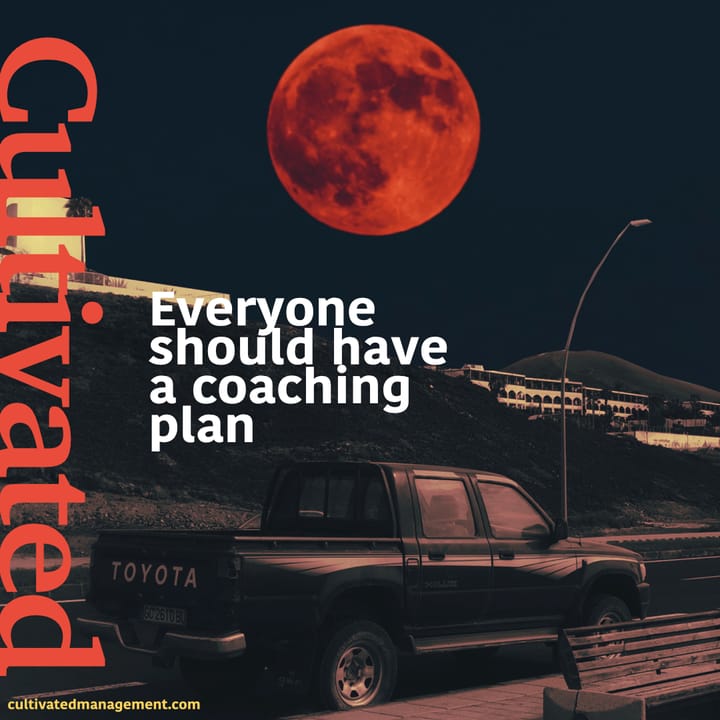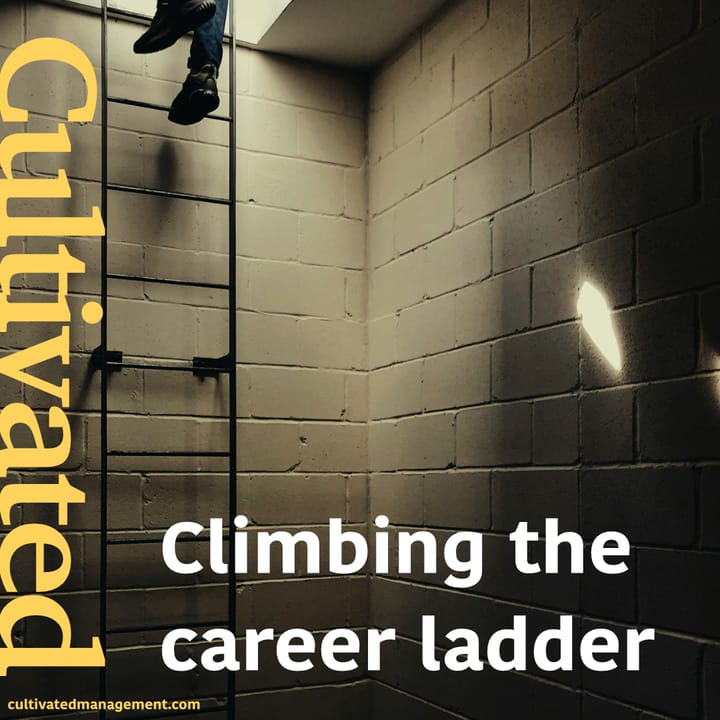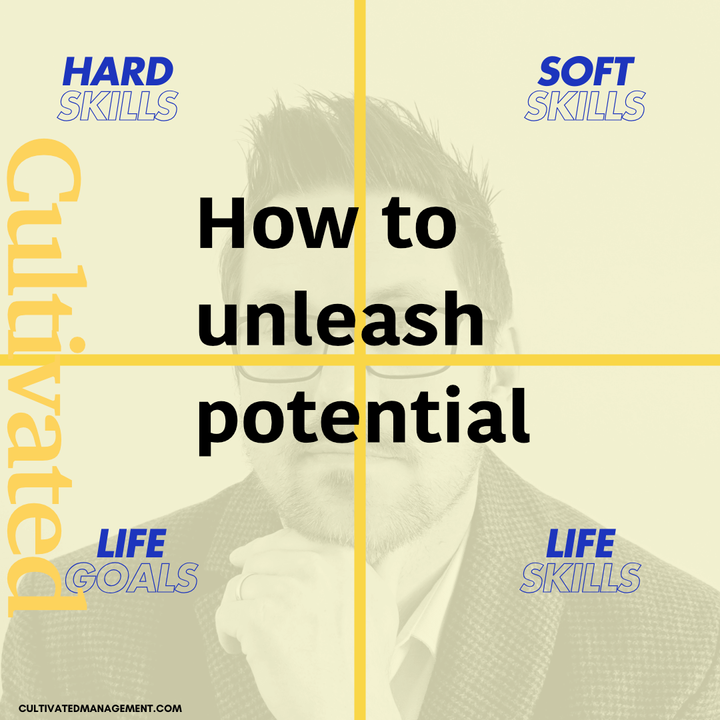The Trinity of Career Development - a powerful way to understand yourself
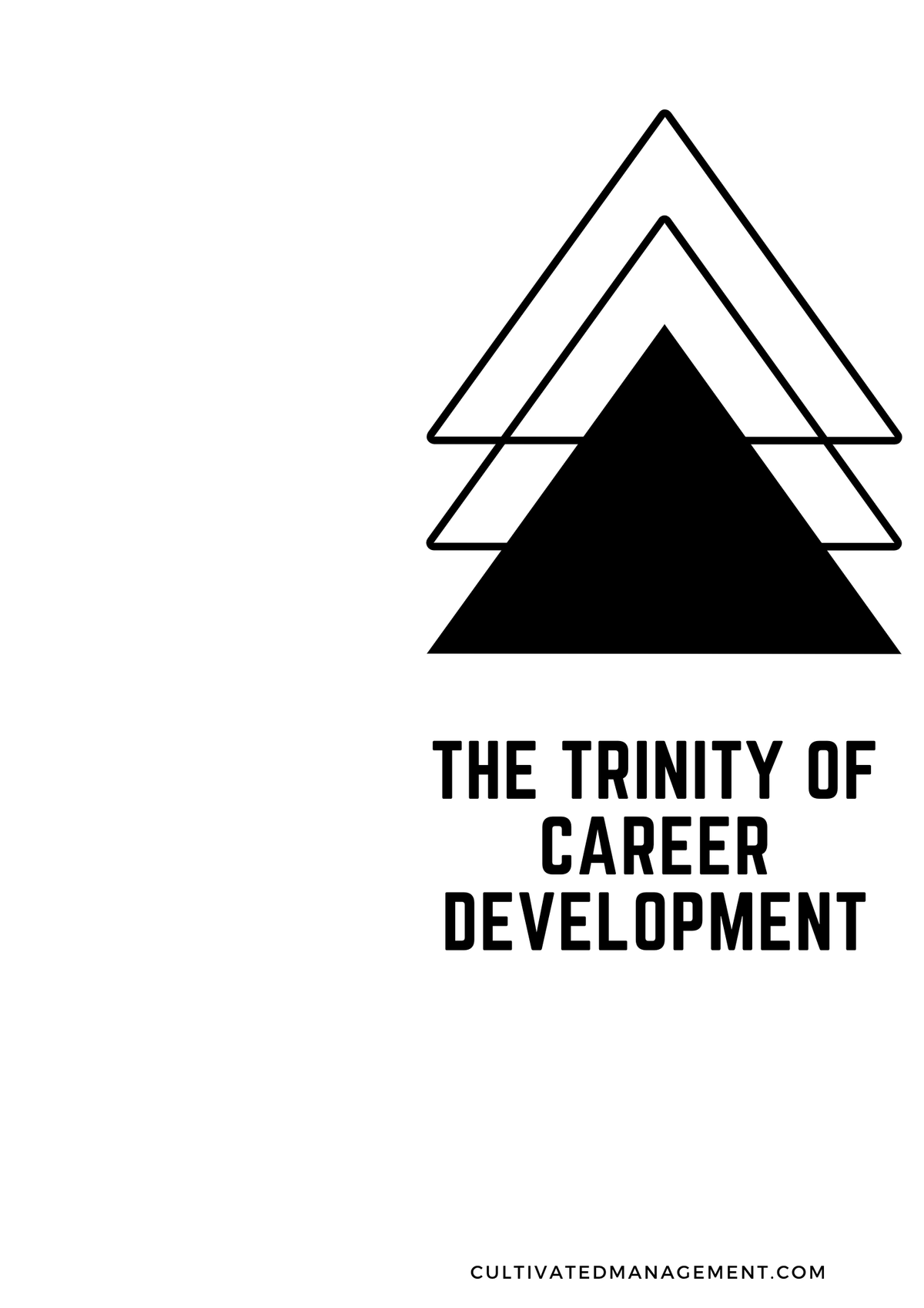
Career Development is a weird thing. We’re often told we need to do it but often lack any frame of reference. But wouldn’t it be great to develop our careers in line with who we are? To find a career and job that seems to fit us well?
Well in this post and YouTube video we’re going to cover the trinity of career development. A process I used when my career had halted and I was deeply stressed and unfulfilled at work.
I’ve since used this with many of my team and people I coach.
It’s a process that I’m confident will help you discover more about yourself and give you insights on where to take your career. It’s actually three tools I’ve combined together that all help to gain knowledge about ourselves.
When we know ourselves better we can take more informed action to guide our lives and careers in the right way.
Why I created The Trinity for Career Development
I was stuck in a rut, deeply unfulfilled, stressed because I was being asked to use my weaknesses at work and I was so bored. I’d ridden through some chaotic times in a startup and thrived – that was my comfort zone – chaos and uncertainty.
But we’d got past the crazy fast-paced startup period and I’d helped to bring order, allowing us to ship value and be insanely productive.
Processes were working, intense recruitment was over and now it was just about cranking out the service, day after day after day. This was not my happy place. Not me at all.
I pondered why I was unhappy and burning out. I pondered why it had been so good for me, and now why was it so bad? The company was still doing well, but I just felt unfulfilled.
Then it hit me. I had no idea what sort of job or career I would thrive in. All I knew was that I thrived in uncertain times. It played to my natural ability to rally people around a decision and make it happen. I knew I could bring order but I didn’t know why. And I had no idea what really made me happy. I’d lost my way in all the craziness of start up life.
As a company we’d been using DISC for many years and I knew I was being asked to be somebody I wasn’t when it came to behaviours and communication style. But that surely couldn’t be all that was wrong?
So I researched and found two tools to add to DISC. I had the three elements that helped with my career development.
Did the Trinity work?
I found a tool that showed me what I was good at, my strengths. And I quickly saw that I wasn’t using many of them in my current role, in fact, I was actually using my weaknesses.
I found another tool that explained what I needed in my life to be happy. I knew I shouldn’t be expecting all of my happiness from work – but even outside of work I’d stopped doing the very things that made me happy.
Armed with my new data and insights I was able to understand more about myself and what I should be doing at work. It gave me the insights to put in place an action plan to find a job and work that aligns more with who I am:
- A job where my strengths are being called upon.
- A job that utilises my preferences for behaviours and communication style.
- A job that weaves in elements of happiness to fill some of my work day, but also importantly, I needed to find a job that wasn’t all consuming so I could include more things that make me happy in my life.
Armed with these insights I put in motion a plan to move to HR within the same business. And it worked. It played to my strengths, used my natural preferences and weaved in lots of elements that made me happy.
I still use the trinity of career development today to guide my career decisions and to support those I coach.
So here it is.
- For DISC I recommend Tony Robbin’s free online survey.
- For strengths I recommend Strengths Finder 2.0.
- For happiness, (choose VIA Survey of Character Strengths) from Authentic Happiness.
The Trinity – DISC
- For DISC I recommend Tony Robbin’s free online survey.
The first tool out of the three is Disc – a wonderful tool for showing you your natural communication and behavioural style. I like disc because it’s simple and it’s not a personality test, it’s about behaviours and you’ll know, here at Cultivated Management we focus a lot on behaviours.
Disc has four main preferences. it’s important to point out that we’re rarely just one major preference type, but are usually spread across a couple. For example a few years ago when I first did it I was a high I, with little else, recently though I’ve moved to be a D I.
Let’s start by expanding a little about disc.

- The letter D in the top left segment stands for Dominance. Imagine decision makers, task focused, assertive, determined.
- The letter I in the top right segment stands for Influencer. Imagine high energy, good personal communication, storytelling and people orientated.
- The letter S in the bottom right segment stands for Steadiness. Imagine harmony, strong inter-personal communication, peace making, people orientated.
- The letter C in the bottom left segment stands for Conscientious. Imagine attention to detail, task focused, process orientated, seeking perfection.
The top two types D and I tend to be assertive in that they believe they can exert influence on their world. The lower two S and C tend to be more passive, in a sense believing they have less influence on the world around them. They are more reserved and cautious.
The right hand two, I and S tend to be more people focused. They are more trusting of people and focus more on people and belonging to social groups.
The left hand two D and C tend to be less trusting of people and hence put more focus on tasks, information, evidence and action.
As you can see already it’s important we have careers and jobs that align around our natural preferences.
With disc you have golden insights to yourself and how you naturally behave and communicate, but you also have the ability to try and understand others, either through observing clues using the cheat sheet, or because you know their type already because they’ve sat DISC.
Grab the DISC cheat sheet to better read others and improve your own communication.
It’s why, when I consult with managers and teams, I encourage them all to sit DISC and make it public – it’s a brilliant way of helping people communicate better – after all, if you know the other persons style then you can adjust your own.
That’s the goal with disc, work out your own and find a career aligned to it, but also work out others and move your behaviours and communication towards them. Knowing your own preferences can be a very positive first step for your career development.
Next up is strengths.
The Trinity – Strengths Finder 2.0
- For strengths I recommend Strengths Finder 2.0.
Simply buy the code, sit the questionnaire, get your strengths. There may be others available but this is the one I recommend. It’s got more expensive recently, but if you can afford it then I’d recommend it – super useful.
You could even use your friends and peers to tell you what you’re good at, but the reality is they’re likely not trained or knowledgeable enough to give you great insights. Maybe they are 🙂
You want to know what you’re good at. Once you know this you need to look at your job and see whether you’re using your strengths or your weaknesses.
There are times when we need to turn a weakness in to a strength. This should happen a lot as you move through your career, but we shouldn’t be trying to fix all of our weaknesses. We should be accentuating our strengths. Making our strengths better and stronger. We should be trying to align what we’re really good at with what our company needs us to do. Mitigate weaknesses and turn some of them to strengths – which is not easy by the way, but be sure we’re focusing more on our strengths.
Strengths finder is a great tool for exposing what you’re good at, and then detailing behaviours, potential careers and ways to use those strengths.
It is soul destroying to be asked, at work, to use your weaknesses as your main responsibilities. What about our strengths?
If you’re lucky, you’ll have a manager who takes time to get to know you and helps you use your strengths at work. Sadly, good managers are in short supply. And of course, all of the elements in The Trinity can be used for your direct reports.
Once you know what you’re good at, you have more data to add to your self-awareness from Disc, to really plot how to move you and your career forward.
You know where to focus your natural preferences and energy from Disc. And now you know what you’re good at, and not so good at. Knowing what your strengths and weaknesses are is an essential insight for your career development.
Now we just need to complete the trinity with finding out what makes you happy.
The Trinity – Authentic Happiness
- For happiness, (choose VIA Survey of Character Strengths) from Authentic Happiness.
For this I use the authentic happiness questionnaire. Hugely in depth and backed by science this questionnaire uncovers the top 5 things you need in your life to be happy.
When I sat this I was blown away with its accuracy, but saddened because I knew I’d let those side projects go, the ones that brought me happiness.
For me happiness is found in Reading, writing, photography, appreciation of nature and of course, spending time with my family.
It’s important to point out that happiness doesn’t have to be found at work. Of course we’d love to have happiness at work but that might not be possible, and we should never expect employers to pander to our preferences for happiness at work. But if we align our core disc preferences and our strengths at work then we will feel fulfilled and competent and that should bring happiness at work.
As a manager don’t be tempted to try and make everyone happy. That way leads to lack of process and discipline for what the business needs you and your team to do. There are lots of elements at work that are dull, tedious and un-inspiring, but essential. If we don’t do the work that’s needed we won’t succeed. And sometimes that work is counter to what makes people happy. But if you, as a manager, align DISC and Strengths in your team, the they will enjoy their work much more.
It is our job in life though to try and align all three inside and outside of work where possible. And that’s only possible by understanding ourselves, reflecting on it and then taking action.
Career Development Conclusion
I do hope that with these three pieces of personal insight you are able to better understand yourself and how all three play a role in our career development.
I’d encourage you to study the data that comes from all three and really ponder what it means to you.
Here’s my own:
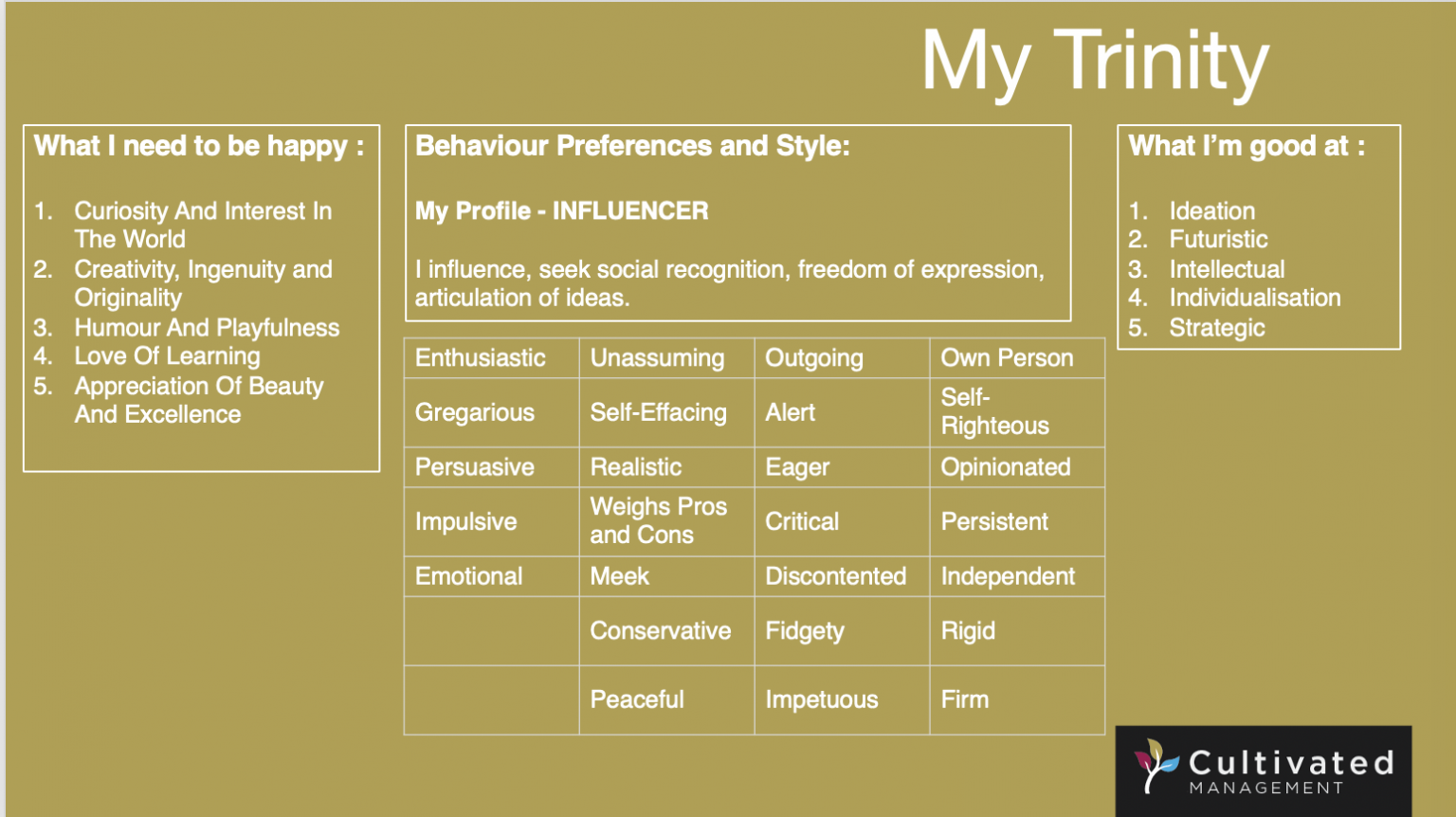
Grab a sheet of paper and write down ideas. I add all three to one page, which I’ve included in the video and below. I can then see myself on a single page. My goal is to use these pieces of insight and data to help with my career development.
Every time I make a career decision I need to ensure it’s heading towards or aligned to me as a person. If it takes me away from what I’m good at, from my own personal abilities I need to understand why, and make the right decision. It may be a necessary move in uncertain times or it could be because I want to develop a weakness, but likely it’s because money or a new title is luring me away from who I am.
There’s no joy in putting money and job titles above what I need to align The Trinity. Trust me, I’ve done that and it lead to burnout.
Finding work that plays to your preferences, uses your strengths and allows you to weave in the things that make you happy, is worth a lot more than any title and salary.
Of course we’re all in different seasons of life with different constraints, opportunities and motivations, but knowing more about ourselves will help us to make conscious decisions about where to take our careers next. Career development done right.
Never Stop Learning.
- For DISC I recommend Tony Robbin’s free online survey.
- For strengths I recommend Strengths Finder 2.0.
- For happiness, (choose VIA Survey of Character Strengths) from Authentic Happiness.
Good luck, let me know how you get on with your career development.

